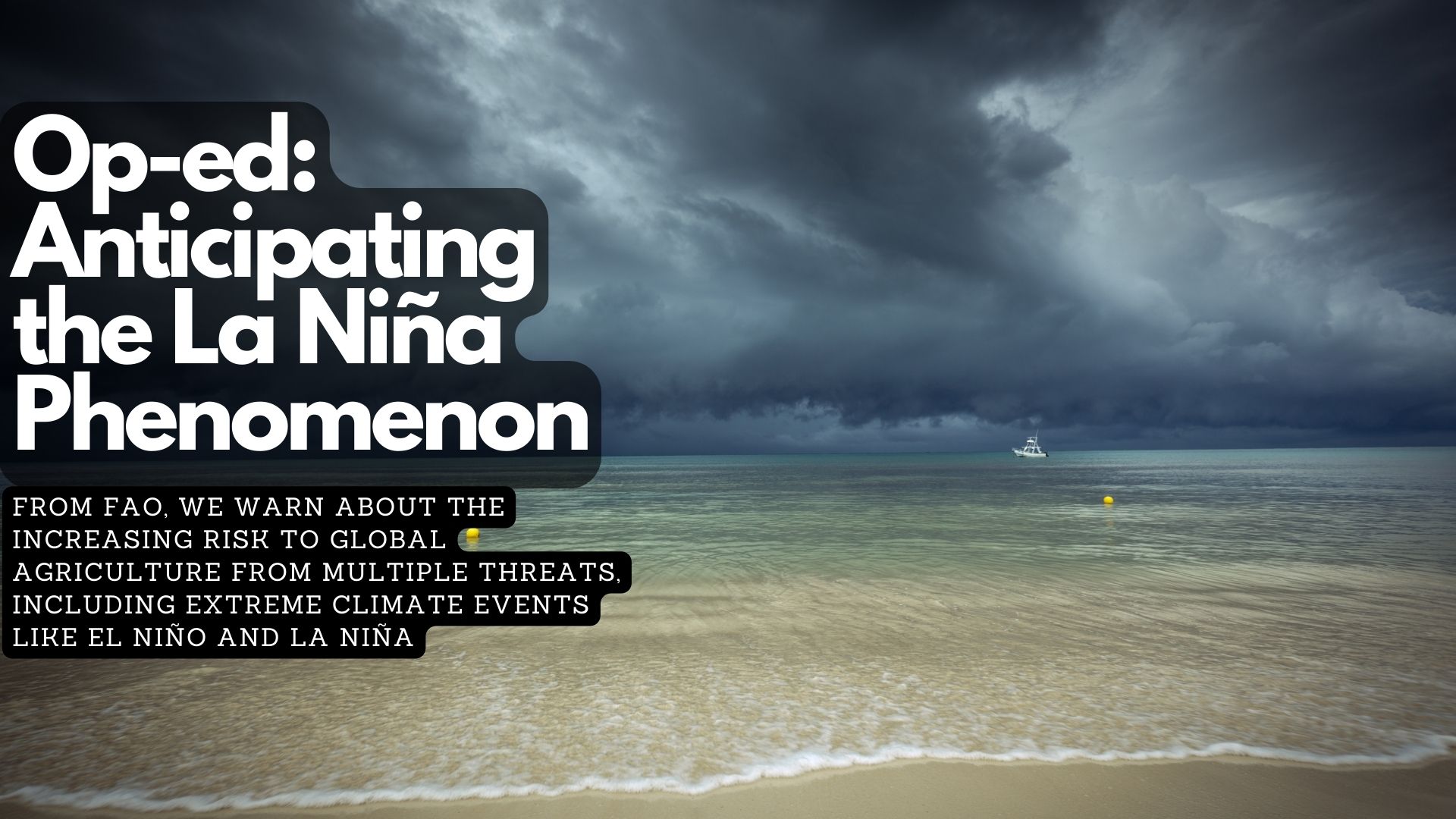By Ángela Blanco, Emergency and Resilience Officer at FAO for Latin America and the Caribbean Marion Khamis, Specialist in Resilience and Disaster Risk Management
The forecast of the La Niña phenomenon for the second half of 2024 revives the urgency of strengthening the resilience of agri-food systems against extreme weather events in Latin America and the Caribbean.
After a year marked by El Niño, which brought droughts, heatwaves, and floods, we now face a new phenomenon, the potential effects of which we must understand to act and protect agriculture, a pillar of our economies and livelihood for millions in the region.
From FAO, we warn about the increasing risk to global agriculture from multiple threats, including extreme climate events like El Niño and La Niña and pests and diseases affecting animals and plants.
Currently, agriculture and its subsectors absorb 23% of the total economic losses caused by these events, i.e., almost a quarter of the losses caused by disasters globally are concentrated in the agricultural sector. In our region, this represents an average loss of 975 calories per capita per day, directly impacting the population’s food security.
In this context, it is imperative not only to respond to current emergencies but also to prepare for future ones, strengthening our capacities to prevent and mitigate their impacts through a holistic approach. This includes profoundly understanding the consequences of climate phenomena on agri-food systems and developing targeted strategies to increase the resilience of vulnerable communities.
Today, we face significant challenges in identifying and measuring how these phenomena affect agri-food systems. This requires methodologies to capture the differentiated effects of threats and consider ethnic-racial, gender, age, and geographical variables to ensure inclusive and effective responses. Moreover, the results of these measurements must be used operationally to formulate public policies and social assistance and protection programs.
In this scenario, the Emergency Data Information System (DIEM) from FAO emerges as a crucial tool, acting as a thermometer for the situation of the agri-food systems and offering key input for assessing the potential impact of adverse climate events on agricultural production and livelihoods. DIEM identifies particularly vulnerable areas and communities, such as those that have already suffered losses in their livelihoods and food security in previous records and are located in areas exposed to the new threat.
Additionally, DIEM can measure immediate impacts through its DIEM Impact version. A successful example of this tool is the use by FAO in assessing the impact of fires in Colombia during 2024 on agriculture and livelihoods through the Southern Oscillation Index (El Niño). This allowed a precise allocation of resources and recovery efforts toward the most vulnerable areas and communities, demonstrating the importance of assessment tools for effective emergency management and impact mitigation on agri-food systems.
As we prepare to face La Niña, it is essential to recognize the importance of advancing in the generation of impact data, implementing anticipatory measures such as reinforcing infrastructure, and distributing agricultural inputs resistant to adverse conditions to minimize the scale of damage. It is also important to establish rapid response systems in emergencies that allow the agile distribution of support and provide direct financial assistance to affected families to meet their immediate needs.
This requires close collaboration between governments, international organizations, donors, academia, and civil society organizations, as well as the participation of family farmers, rural women, youth, indigenous peoples, and Afro-descendants.
As we progress, the goal must be to improve and increase the assessment of disaster impacts. DIEM is a step forward in this direction, and the information it provides will help us commit to continuous improvement and collective action to face the challenges ahead.
